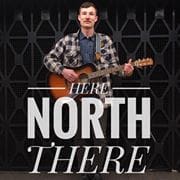The North of Nigeria: A Region at the Crossroads
Throughout my career, I have often been asked to explain why the North of Nigeria does or does not do something politically significant. I never take this personally. As a spokesperson for the Northern Elders Forum (NEF), I have spoken on behalf of the North without hesitation or reservations. However, it is important to note that I also spoke for Nigeria as a whole when addressing issues that threatened national unity and fairness—key elements for our survival.
Many other groups have done similar things, often with more forceful language and a stronger sense of regional identity. I see no contradiction in loving the nation while defending one’s region. My entire adult life has been dedicated to Nigeria, its promises, and its challenges. I am deeply aware that the North will suffer if the country as a whole faces threats. At the same time, I believe that the North’s size and resources could become liabilities if misused or neglected by those who benefit from its decline.
Nigeria has always been a country of distinct regions. When a comrade suggested pushing forward constitutional amendments without considering the North, I recognized this as a common response to frustrations about the North being seen as stubborn or unwilling to compromise. Similarly, when a well-known TV anchor, Seun Okinbaloye, asked me, “How has President Tinubu offended the North?” I understood this as a provocative but relevant question within certain political circles.
Former Kano State Governor, Senator Rabiu Musa Kwankwaso, voiced concerns about the lopsided distribution of federal funds favoring the South. His comments resonated with many Northerners. However, many people from the South likely dismissed these grievances, as they rarely care about what happens outside their own region. There is little sympathy for the North’s struggles in political, economic, or intellectual circles in much of the South. Often, the North is blamed for its circumstances, or reminded that it should wait for its turn to assert itself as it did in the past.
A Nation of Parts with Deep Roots
The North has always played a central role in Nigerian history and politics. The British created a colony where inequality was institutionalized. The old North protected its disadvantaged status through an aggressive stance, which helped it gain positions it might have otherwise lost. In democratic Nigeria, the North’s main strength has been its large voting population and occasional consensus on key political issues.
Its complexity and diversity make it a prime target for politicians seeking to exploit divisions. Meanwhile, its relative poverty and insecurity have contributed to the collapse of both formal and informal leadership structures. Northerners have historically fought among themselves over religion, land, poverty, and politics—issues they have plenty of.
The North is home to 19 state governments and 410 local government councils, contributing to its status as the poverty capital of the world. Abuja, once entirely part of the North, now houses the federal government and homes for other Nigerians, which Northerners can only view from distant shanties. The North ranks high in regions where children are increasingly malnourished. Many of its youth do not attend quality schools, and young adults lack skills, leading some to turn to drug addiction and petty crime. Today’s bandits and terrorists are often the children of a generation that received no proper preparation for adulthood, whether Western or Islamic.
Economic Struggles and Political Neglect
The North provides cheap labor and raw materials to the rest of Nigeria, yet its economy continues to shrink due to a lack of power, infrastructure, and security. This is the North that is frequently blamed for holding the country back. Its only value now is its large voter base, which politicians are already eyeing as a commodity.
Plans to introduce constitutional amendments and new legislation without the North’s consent are becoming more common. This is possible because those who are meant to protect the North’s interests are often on the side of those who want to weaken it. While governors receive improved funding, real improvements are rare, limited to token gestures. Representatives in Abuja often stay away, confident they are on the right side for re-election. Their children attend private schools and foreign hospitals, while the children of the poor face massive loans that will burden future generations.
Northerners cannot bring friends from other parts of Nigeria home, as they would be embarrassed by the state of schools, hospitals, roads, and communities. Most importantly, the pervasive fear in the North keeps its elite away, leaving them only to hear about abandoned villages, farmlands, and dangerous highways.
The Path Forward
The North is now at the center of a political storm that will intensify in 2027. It risks sinking deeper into poverty if it continues to play the victim and blame others. Alternatively, it can find its strength by uniting its poor, alienated youth, and remnants of its leadership to resist further political weakening, deepen poverty, and push it beyond recovery.
How the North responds to political overtures in 2027 will be crucial. Northerners must resist being bought as votes. They can start by making it clear that those who represent them will be judged on their loyalty to the North’s interests. They should also let the rest of Nigeria know that they are committed to a united country that respects the rights of all regions, but will not accept second-class treatment.

